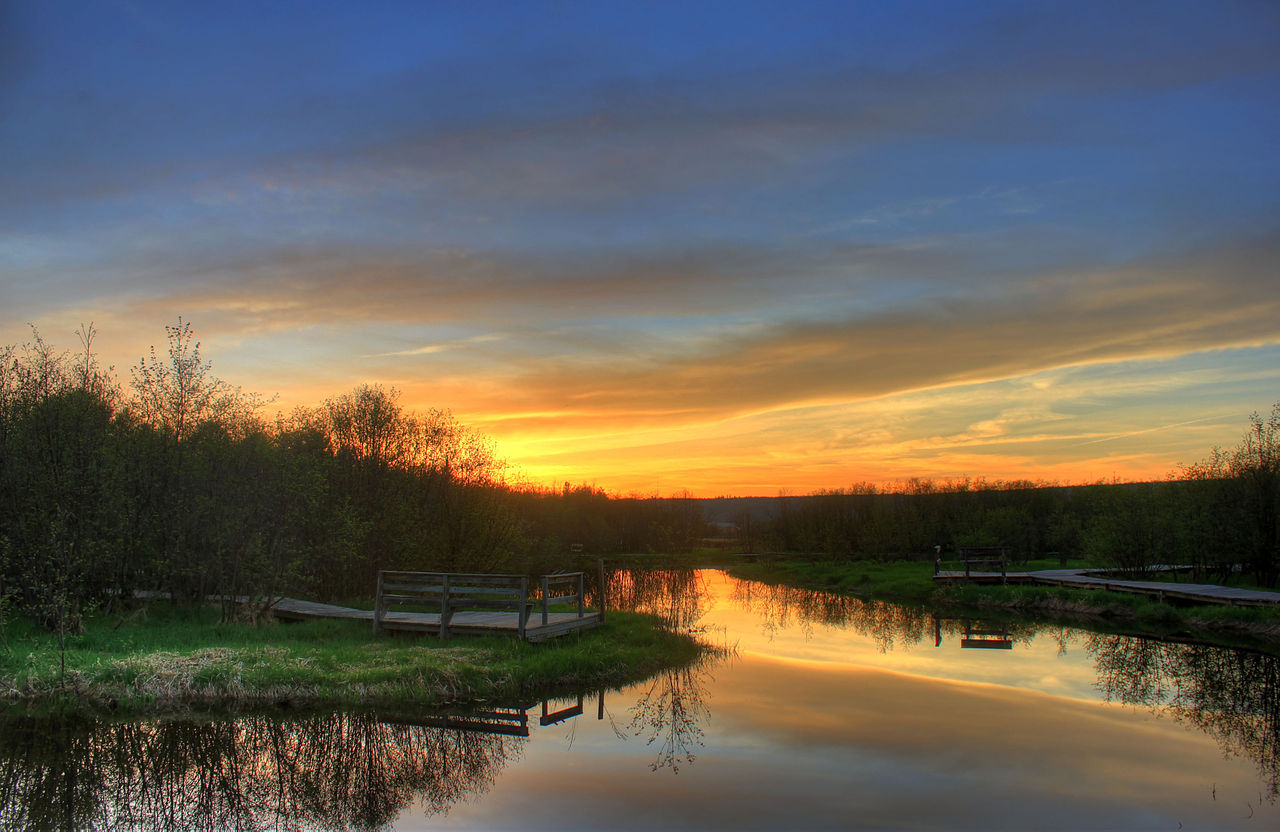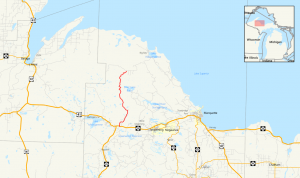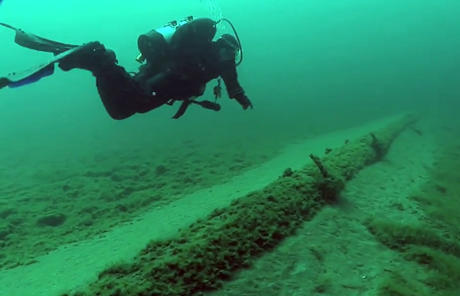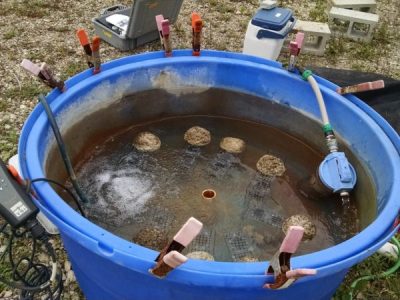
A battle involving the needs of mining and timber companies in the Upper Peninsula versus concerns about the future of wetlands, rivers and wilderness is on its way to the 6th U.S. Circuit Court of Appeals in Cincinnati.
The outcome could wind up being a litmus test on the reach and power of the Environmental Protection Agency.
On February 9th, The Pacific Legal Foundation joined with Marquette County officials to appeal the EPA’s veto of the proposal to construct County Road 595.
The plan to build a 22-mile route as a short cut for heavy trucks so they could bypass city streets in Marquette County was originally proposed almost 5 years ago.
The road would provide access to the northern part of the county, near the Eagle Mine in Michigamme Township, to U.S. Highway 41 and M-28 in Humboldt Township. (see map).

Map of the proposed route of County Road 595 in Marquette County in the Upper Peninsula of Michigan, courtesy of Stratosphere
It would be used primarily for commercial truck traffic to haul rock and ore from the Eagle Mine to a processing facility south of US 41 in Humboldt Township.
Right now, big trucks must use existing county roads which involves passing across almost 60 miles of roads through the cities of Marquette, Negaunee and Ishpeming.
When the road was first proposed, the mine which was then owned by Rio Tinto, said they’d pay for construction of the road so taxpayers wouldn’t have to foot the bill. County and state officials came on board, agreeing that the road would reduce air pollution, increase safety, and save about 450 thousand gallons of gas each year. Michigan’s Department of Environmental Quality gave it the thumbs up.
But when environmental groups and the EPA got wind of it, the EPA stepped in and vetoed the project, saying it would damage vital headlands, rivers, wilderness and wetlands. A district court would not allow Marquette County to appeal the veto.
Now, The Pacific Legal Foundation has agreed to represent The Marquette County Road Commission in seeking reversal of last year’s district court ruling that agreed with EPA’s claim that the courts could not review its road veto.
Pacific Legal Foundation’s managing attorney Mark Miller says the case has now become more about the rights of private citizens, county and state governments versus the rights of the Federal Government, and less about the right to build the road.
Miller tells Great Lakes Now, “The courts should be open to the public to challenge arbitrary decisions by federal agencies. When we’re not allowed to, that’s a perfect example of government overreach. The EPA is acting like a judge, jury and executioner.”
Deborah Pellow, chairman of the group called “Stand U.P.” tells Great Lakes Now, “We think the EPA overstepped its bounds and did not follow the law.” Pellow’s group raised money to pay legal fees and a portion of the fees the Marquette Road Commission needed to try to push through Highway 595. Stand U.P.’s website
http://www.595facts.com/ says “Washington D.C. doesn’t get it. Here in the Upper Peninsula, we know how to protect our environment and build our roads. We need a road, and we are going to build it.”
Pellow says, “This is bigger than 595. The U.P. has 40 percent wetlands. We’ll never be able to build another road if this continues. When you have a department that gets to make up their own rules as they go along like this one, it’s wrong and someone needs to call the EPA to task.”
Kathleen Heideman with the Upper Peninsula Environmental Coalition (http://upenvironment.org/) which just merged with the group called Save The Wild U.P. disagrees.
She says this is all about mines, timber companies and a county government that wants to support making it easier for big trucks to travel across the Upper Peninsula. Heideman tells Great Lakes Now it’s very simple: “They wanted to state of Michigan to be the permitting agency to destroy the wetlands to build these roads.”
She says her group “completely affirmed the position of the EPA that these are critical wetlands, critical head waters, headlands of major rivers that were being threatened.” Heideman says, “This is the McCormick Wilderness Track. That watershed flows into Lake Michigan and Lake Superior. It’s a water rich area.” About 25 acres of wetlands must be filled to build Highway 595.
Heideman says the road has become representative of a larger issue on a national scale. She says, “Wetland protections are the kicking boy right now. The federal clean water rule is definitely going to die under the Trump administration. But it wouldn’t change the regulations for this project.”
She says, “the EPA was caught doing its job protecting our resources and our wetlands. This is where rivers are born.
These wetlands are the headwaters of major rivers in Marquette county, and small trout streams. The EPA is protecting the most vulnerable waters that flow into the Great Lakes.”
Great Lakes Now talked with Engineer Manager of the Marquette County Road Commission, Jim Iwanicki, who says Highway 595 was just a simple plan that made logical sense; “the best way to transport materials to and from the mine. It was basically: is it better to use the existing road system – about 55 miles long – through our most populated areas, or is it better to use some existing county roads and two track trails on forest company land to avoid truck traffic going through populated areas which would be about 20 miles long? We believe it would be better to create a new road to avoid populated areas. And for our logging industry, it would provide public safety for us here in Marquette county.”
Iwanicki says, “We think the EPA overstepped their bounds. And they did not follow the law in how they dealt with us. And we think we were wronged. So we’re asking the court system to look at what the EPA did and give us our day in court.”
Pacific Legal Foundation’s Mark Miller sums it up like this: “We believe there’s a grave injustice being done. We’re trying to change the law so that taxpayers can sue the government when the government is simply acting arbitrarily. We think the Marquette County Road Commission should be allowed to sue the EPA.”
The Marquette County Road Commission – represented by the Pacific Legal Foundation – the E.P.A, and a court-appointed mediator are scheduled to discuss the proposal to build County Road 595 next month.





